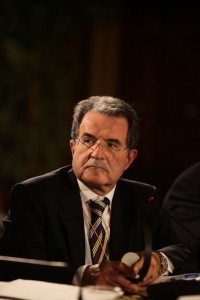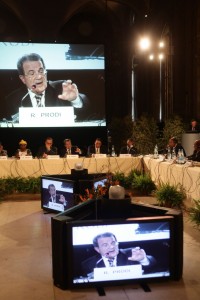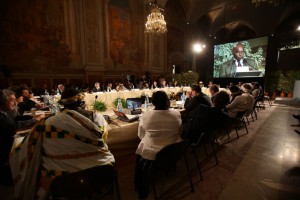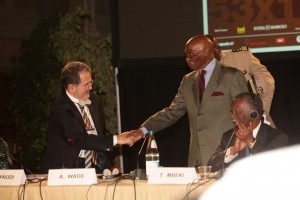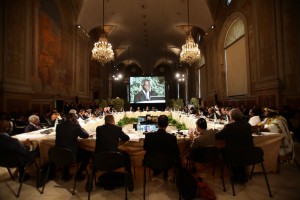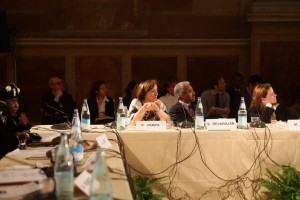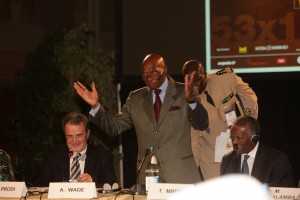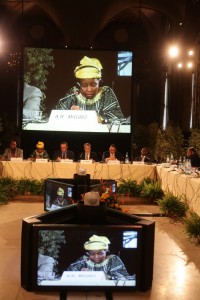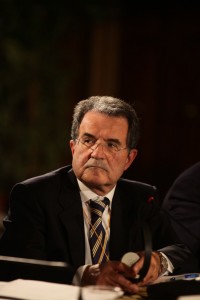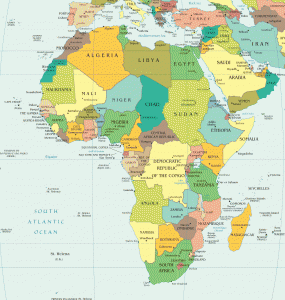 “Africa: 53 Countries, One Union”, Conference In Bologna Today
“Africa: 53 Countries, One Union”, Conference In Bologna Today
Published on Eurasia Review , May 21, 2010
The first of three such iunternational meetings aimed at tracking a development and peace course for Africa, the “Africa: 53 Countries, One Union” conference will take place in Bologna today; it is promoted by the Foundation for the Collaboration among peoples’ (instituted and formed by Romano Prodi) and by the Bologna Center of Johns Hopkins University, sponsored by the UN, AU and EU.
A greater integration of African states and economies is the prerequisite for the continent’s social and political development of Africa and this will serve as the theme of the summit to be opened by Romano Prodi, who led the UN commission for peacekeeping and peace missions to Africa as well as twice prime minister of Italy and president of the EU Commission from 1999-2004.
Tanzanian Asha-Rose Mtengeti Migiro, Vice-secretary general of the UN since January 2007, jean Ping, president iof the Au Commission and presidents Abdoulaye Wade and Faure Gnassingbe, of Senegal and Togo, Thabo Mbeki former president of South Africa and Zhan Shu, ambassador for policies to Africa from the Chinese ministry of foreign affairs.
Several other speakers from African are featured in the program including Abdelkader Messahel, Algerian minister for ‘African and Maghreb Affairs’, Mussa Dosso, minister of Education of Ivory Coast, Samuel Sam-Sumana, vice-president of Sierra Leone and Joseph Boakai, vice-president of Liberia, Andris Piebalgs, EU commissioner for development, Michael A. Battle, US ambassador to the AU, and various representatives from the World Bank to the OECD.
“My experience as president of the International UN and AU Panel for peacekeeping in Africa – said Prodi opening the conference – has led me to conclusions that extend beyond peacekeeping operations: “It is clear that only overcoming the current political-economic fragmentation of the African continent shall it be possible to achieve more peace, development and prosperity”.
The Conference shall therefore discuss of the “possible and desirable adoption of common policies by actors such as the EU, USA, China and international institutions such as the UN, the WTO and World Bank toward the African continent” “promote a debate over the greater possibilities of integrating African states and economies – write the organizers – as the prerequisite for the continent’s social and political development” also drafting “a useful document for promoting development and peace in Africa in view of two conferences” to be held in 2011 in Washington and in 2012 in Addis Abeba, home of the AU headquarters.
